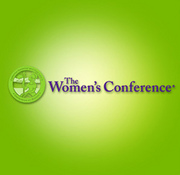By: Dr. Cara Natterson, M.D.
Today’s parents over-think, over-manage and over-worry. It’s our helicoptering reputation and, frankly, it’s well deserved. Is it possible to cut through all the local and global anxiety and stop worrying about every single detail of life?
As a pediatrician (and as a mom of young kids), I have focused my career on simplifying the science and dissecting the hype. What really is safe for kids and what’s not? Here are three things you may have heard are bad for kids… The reality may surprise you.
Milk
Ah, milk. Does it really do a body good? Milk’s opponents say it’s the cause of a long list of ailments (allergy, constipation, congestion, acne, etc.) and, if that’s not bad enough, that it’s filled with hormones and chemicals from the farm.
The reality is that—other than water—milk is the only drink recommended by most pediatricians. It’s full of protein, calcium, and an array of vitamins and minerals including vitamin D and iron. Studies show that milk drinkers tend to be leaner than their juice- and soda-drinking counterparts. My kids drink it every day (usually twice), and in an effort to maintain my own bone density, I do too. The one thing to watch out for is the hormone RBGH (also known as RBST). Make sure to buy milk with “no RBGH” on the label. This isn’t hard to do: Most major food chains and even Starbucks only provide RBGH-free milk.
Antiperspirant and deodorant
By now, pretty much everyone has seen the email linking antiperspirant to breast cancer. This urban myth has been around for so long that it has essentially become urban fact. Time to file it back into the “myth” category. Many antiperspirants contain aluminum, and this heavy metal is often blamed for causing cancers, but there is no science backing up the claim. While aluminum has been found in the tumors removed from women’s breasts, this does not mean that the aluminum caused the tumors. Interestingly, though, there may be a link between heavy metals and hormones, and an even stronger one between the preservatives used in many deodorants—called parabens— and hormones. The jury is still out on this one, but the case against aluminum and breast cancer appears closed (and aluminum is free to go).
Fish
One of our healthiest foods has endured a smear campaign and now most people fear it. This was not without reason: Because of long-running pollution that filled our oceans with heavy metals like methylmercury, our sea life became increasingly contaminated. And because of research showing that methylmercury (as opposed to ethyl mercury, which was the preservative used in vaccines until 2001) impacts neurologic development of infants and children, the EPA issued a warning in 2004 that women of childbearing age and children limit their consumption of certain fish. Here’s the problem: We take everything too far. People quickly limited consumption of most fish, and many people took that consumption down to zero.
Fish is an important source of the omega-3 fatty acid DHA, and DHA is the primary fatty acid building block of young brains. Without fish in the diet, it takes a great deal of effort to get enough omega-3s. People have tried supplementing with fish oils (because the oil doesn’t have heavy metals in it, unlike the muscle or meat of the fish), but anyone who has tried to give a toddler fish oil knows where that battle ends. Others have tried alternative sources like flax seed and walnuts, but these have relatively less DHA than fish, so they are not ideal sources. In the end, the worry about fish came from a reasonable place, but the result deprives growing brains of a critical nutrient. Rather than fearing fish, learn which ones to eat in moderation and which ones are fine for more liberal consumption. In my house, we eat salmon twice a week.
Worrying more has not made our children any healthier, evidenced by the fact that we have more childhood asthma and obesity than ever before. It’s time to trade the hype for facts so that we can focus on what really matters in raising healthy children.
CARA NATTERSON, MD has treated thousands of children and is the author of several books. As a pediatric consultant, she works with parents to review medical issues and wade through conflicting research.
Cara has appeared as an expert on television, in print and on the web. A graduate of Harvard College and Johns Hopkins School of Medicine, Cara is a Board certified pediatrician and a Fellow of the American Academy of Pediatrics. She lives in California with her husband and two children. Visit Cara at her website: http://www.worryproofmd.com
Visit the Women's Conference website: http://www.womensconference.org

